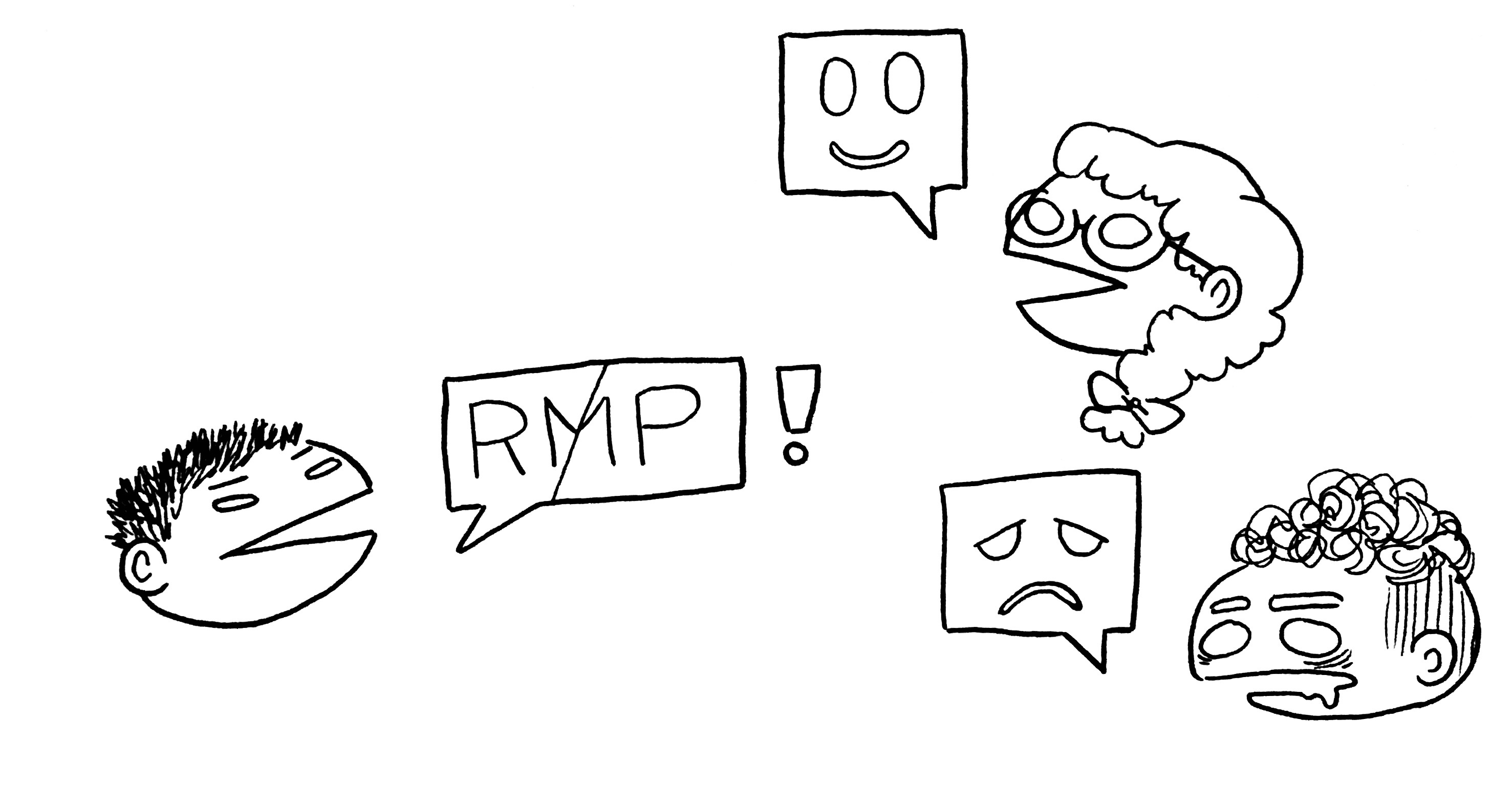OPINION: Students cannot rely on professors’ ratings
As class registration for the Fall 2018 semester approaches, most USC students will follow the familiar pattern of adding and removing classes within our WebReg portals until the schedules we’ve designed achieve the magic scheduling trifecta: the necessary courses at the right times of day, led by the right professors — the ones who make rolling out of bed for class bearable. Some may even do the unthinkable and schedule an 8 a.m. or Friday class if they think a certain professor is worth it. And to deem their worthiness, many turn to the professor ranking website, RateMyProfessors.com to see how the wide array of professors at USC measure up.
With over 19 million ratings, 1.7 million professors and 7,500 universities in its database, RateMyProfessors.com markets itself as “the largest online destination for professor ratings” and “the highest trafficked site for quickly researching and rating professors, colleges and universities” in North America.
The site invites reviewers to assign numerical rankings, from one to five, in the categories of overall rating and level of difficulty. It then asks whether or not the reviewer would take a class with the professor again, if the class was taken for credit and whether the textbook and attendance were mandatory. In addition to leaving a comment about the professor, reviewers can select up to three predetermined “tags” that best describe the professor from “tough grader” to “inspirational.” Reviewers can even grant professors red hot chili pepper icons if they find the professor attractive.
Having established itself as a readily accessible resource during the stressful weeks of class registration, RateMyProfessors.com has become the go-to for college students seeking the scoop on their potential professors, and often appears as a top search result when a professor’s name is searched on Google. Many USC students pore over these ratings when choosing their courses and sections. However, USC students, and college students in general, often regard the reviews as sacred, relying far too heavily on the specious site when making their vital course registration decisions.
It’s worth noting reviewers identities’ are never given or verified. Because the site operates on an anonymous basis, there is no way of ensuring that the reviews are written by actual students who have taken a course from that professor. Even more concerning, because professors are growing increasingly aware that their online reputations precede them, it could even be the professor leaving glowing and self-gratifying reviews on their own pages in hopes of boosting their ratings.
Perhaps the biggest weakness of the site is that one of the main criterion of a professor’s rating is their level of difficulty. As a result of this algorithm, it is the “easy” teachers who receive positive recognition. In fact, the top-rated professor on RateMyProfessors.com for the 2016-2017 school year was rated only 1.9 for difficulty. Yet most of us know that easy teachers are not necessarily the best ones for our education. It is often in our most challenging courses that we grow the most as students and as people, and when students earn a high grade as a result of hard work and dedication as opposed to an easy A borne from free-riding, their sense of satisfaction is exponentially higher.
So on a misleading site where charisma is more rewarded than credentials, our perceptions of a professor can become skewed before we even give them a chance. In fact, subscribing to other people’s beliefs that a professor is phenomenal or terrible before students even experience their teaching firsthand often becomes a dangerous self-fulfilling prophecy.
Additionally, as online consumer review methods used on popular sites like Yelp and TripAdvisor have gained traction over the past decade and are now an integral part of everyday decision-making, it is important to keep in mind that reviews can tend toward extremes rather than reflect the common view. In fact, according to a 2016 research study conducted at Harvard Business School, people generally only leave reviews when they’ve had an unusually positive or negative experience, as this is the only way they are invested enough to devote the time to leaving a review.
Ultimately, while review sites can be a tool in our decision-making arsenal, they shouldn’t be the sole deciding factor for whether to take a certain class with a certain professor. Students should not base decisions about their education on reviews from RateMyProfessors.com alone, instead taking the reviews as points of information rather than the truth. And professors shouldn’t get sucked into being popular on the site, mistakenly believing that the reviews accurately reflect the wisdom of the masses. After all, the top professors on the site are not necessarily the top professors in the nation.
Realistically, most of us will continue to use the site to inform our Fall 2018 registration process, as it is one of the only resources available for gaining intel on professors before registering for classes. However, it is important that students proceed with caution and take what they read on the website with a grain of salt, keeping in mind that one site in no way tells the whole story about a professor.

